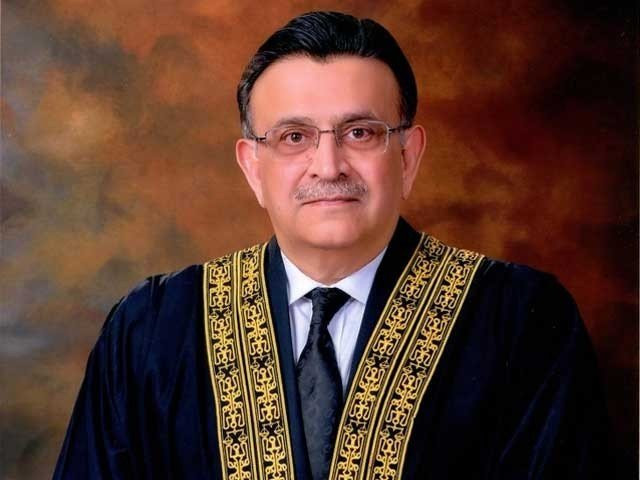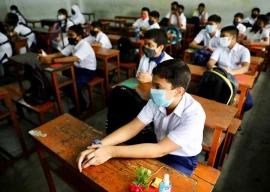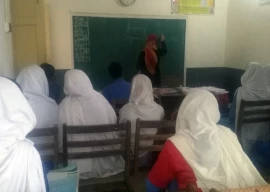
Chief Justice Umar Ata Bandial on Friday bemoaned the sorry state of affairs in the school education system in Sindh, saying that the province was notorious for its ‘ghost schools’ – non-functioning schools that continue to exist only on paper.
A two-member bench led by Chief Justice Umar Atta Bandial and comprising Justice Ayesha Malik was hearing the case filed against the decision of the Sindh High Court (SHC) regarding the forensic audit of the Sindh Textbook Board.
During the hearing, CJP Umar Ata Bandial noted that the biggest weakness of the country was that no attention was paid to the education system. Addressing the Sindh government's lawyer, he remarked that the said province had a bad reputation for its ghost schools.
Later, the top court ordered the auditor general to conduct a forensic audit of the Sindh Textbook Board and submit its report to the relevant court.
The lawyer for the Board contended that the SHC had issued an illegal order.
Justice Malik remarked that the board got the budget of Rs2.3 billion and the SHC had ordered its audit, which the board was not carrying out.
The lawyer replied that the board had no objection to the audit but had an objection to the appointment of an additional registrar as a supervisor and conducting the audit immediately. The chief justice said that the weakness of the country was that no one paid attention to education.
He asked about the auditing authorities. The lawyer replied that the audit was conducted by the Accountant General Pakistan Revenues (AGPR). He added that he would submit the audit reports for the past 20 years if ordered by the court.
Later, the court ordered the Auditor General to audit the Sindh Textbook Board.
It is pertinent to note here that as per one report that came to the fore last year, as many as 11,000 schools in Sindh have teachers but no students while the teachers serving in these schools draw reasonable salaries without doing any work.
These schools are proving to be a burden on the state's limited resources. Wages of 11,000 teachers are making up a whopping salary bill on account of payments to teachers.
The report said influential people are using these schools as their guest houses as no student is coming to these schools. There are 1.8 schools for every 1,000 students in rural Sindh. A mere 15 per cent of primary and middle schools have two teachers, it added.

1732071267-0/lana-(2)1732071267-0-405x300.webp)
1727242355-0/Diddy-(1)1727242355-0-165x106.webp)

1732063440-0/elon-(3)1732063440-0-165x106.webp)




1731749026-0/Copy-of-Untitled-(3)1731749026-0-270x192.webp)











COMMENTS
Comments are moderated and generally will be posted if they are on-topic and not abusive.
For more information, please see our Comments FAQ